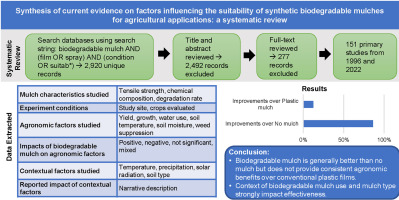
# Researchers Create Water-Degradable Polymers from Inedible Seed Oil
Scientists have effectively synthesized water-degradable polymers using chemicals obtained from **Brassica carinata** seed oil, setting a foundation for more eco-friendly substitutes to traditional plastics. These **polyesteramides**, developed at the **University of Florida**, preserve their mechanical integrity even with brief water exposure, while significantly breaking down under prolonged environmental conditions.
## **An Eco-Friendly Feedstock for Plastics**
**Brassica carinata** is a plant that can prosper on uncultivated land as a winter cover crop. Its seed oil is already attracting commercial interest for use as a bio-jet fuel feedstock, and researchers have now uncovered another important use in polymer manufacturing.
The pivotal ingredient of these new biodegradable materials is **brassylic acid**, a 13-carbon aliphatic carboxylic diacid derived from the oxidation of **erucic acid**, the primary fatty acid in **B. carinata**. Nylon products produced from brassylic acid show remarkable thermal and mechanical stability due to amide-group-driven **chain–chain hydrogen bonding**. However, these traditional nylons are not readily degradable, restricting their use in single-use plastic alternatives.
## **Developing More Degradable Polymers**
To solve this issue, researchers **Stephen Miller** and **Yohei Yoshinaka** suggested that adding ester groups to a nylon-like framework would enhance degradability while maintaining heat resistance and mechanical integrity. They accomplished this by **polymerizing aliphatic carboxylic diacids of various chain lengths with N,N’-bis(2-hydroxyethyl)brassylamide**, a compound derived from brassylic acid and ethanolamine.
The resultant **polyesteramides** exhibited **melting temperatures similar to or even surpassing those of several commercial plastics**, establishing them as strong candidates for practical applications. **Clare Mahon**, an expert in biodegradable polymers at the **University of Durham**, emphasized the importance of this breakthrough, particularly in creating alternatives to polyethylene, a widely utilized yet non-biodegradable material.
## **Water Exposure and Long-Term Degradability**
A crucial discovery was that these bio-derived polyesteramides **maintained their structural integrity** even after one day of water exposure. Notably, polymers produced with shorter diacids displayed diminished water resistance, underscoring the significance of **hydrophobicity conferred by the long methylene sequences of brassylic acid**.
‘The most thrilling moment was when I could validate the theory … that the hydrophobicity could aid in preserving the mechanical properties [of the polymers] during short-term water exposure,’ Yoshinaka explained. This **water resistance expands the potential uses** for these materials, including scenarios involving brief water contact, such as in packaging or outdoor gear.
Regarding biodegradability, the polyesteramides displayed substantial breakdown in seawater within a year—markedly different from the **hundreds or thousands of years needed for conventional plastics to decompose**. While further research is necessary to assess the effects of microbial degradation, initial results indicate that these materials may **decompose even more rapidly** in the presence of bacteria.
## **Prospects for Recycling and Future Advancements**
In addition to biodegradability, the researchers investigated the chemical recyclability of their polyesteramides. Using **aminolysis with ethanolamine**, they retrieved the original monomer in **84% yield**, which could subsequently be repolymerized back into the polyesteramide. This points to the possibility of a **circular economy approach**—where materials are not only biodegradable but also **chemically recyclable**.
Looking to the future, Miller and his team are optimistic that enhancements in polymerization methods—such as **more efficient stirring in sophisticated reactors**—could yield **polymers with even higher molecular weights and improved mechanical characteristics**.
## **Conclusion**
This advancement underscores the promising potential of **plant-based, biodegradable plastics** that merge **high performance with environmental sustainability**. With ongoing research and refinement, bio-derived polyesteramides could play a vital role in minimizing plastic waste and moving towards a more sustainable **polymer industry**.
Miller remains hopeful about the future of plant-based plastics:
*”I believe the polymers of the future will be constructed … from plant-based molecules like this one, like brassylic acid.”*
As scientists continue to broaden the applications of these groundbreaking materials, the emergence of **water-degradable, recyclable bioplastics**—inspired by crops like **Brassica carinata**—may significantly contribute to a greener, more sustainable planet.